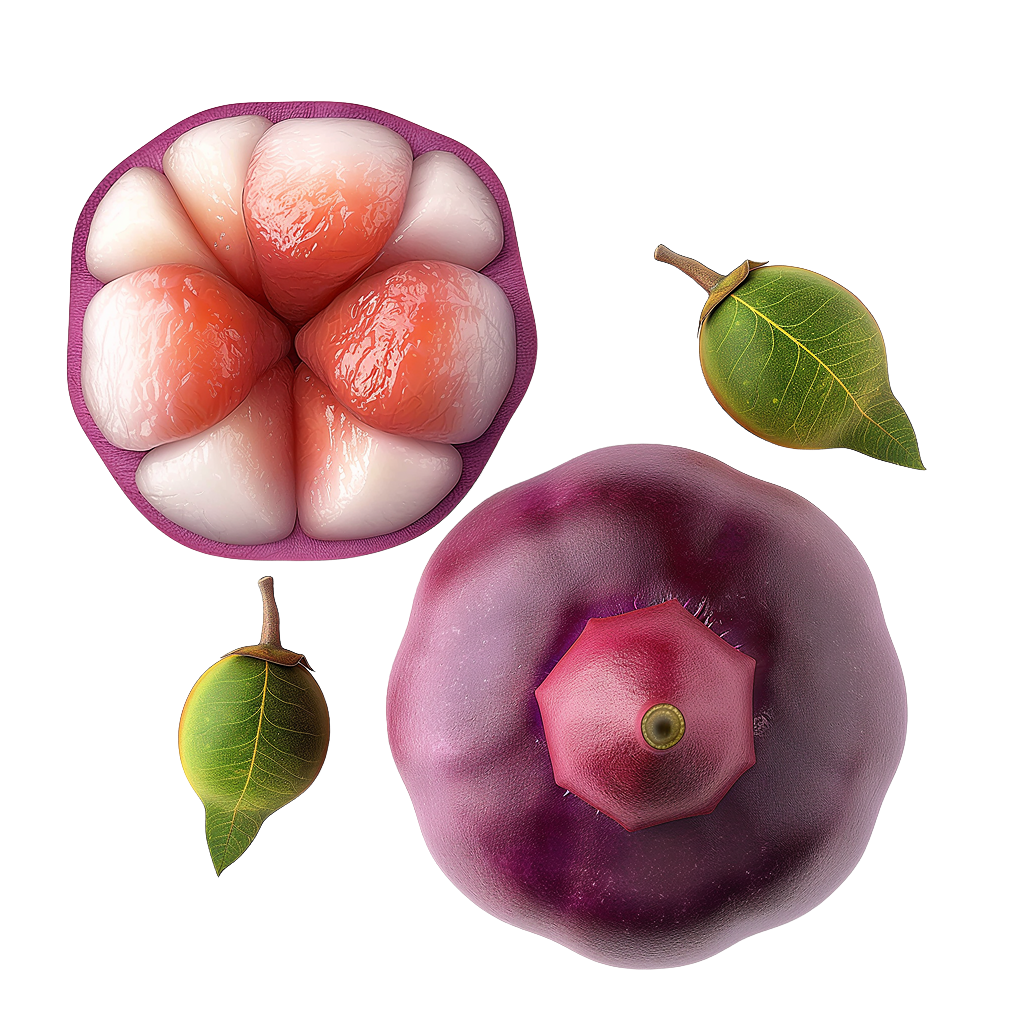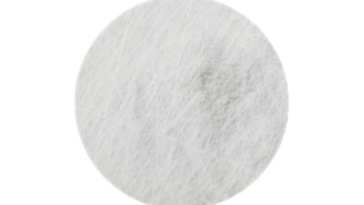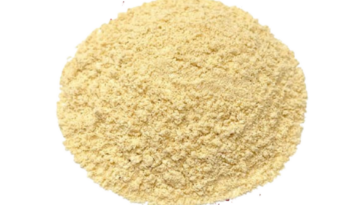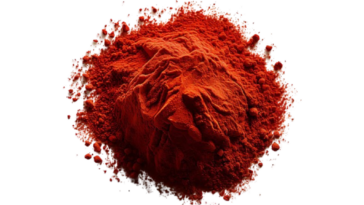Mangosteen extract, derived from the pericarp or rind of the Garcinia mangostana L. fruit, has a rich history rooted in Southeast Asia. Native to countries like Indonesia, Malaysia, Thailand, and the Philippines, the mangosteen tree has been cultivated for centuries for its delicious fruit and various medicinal properties. The fruit itself has been revered in traditional medicine systems such as Ayurveda and traditional Chinese medicine for its purported health benefits. However, it’s the extract from the pericarp that has garnered significant attention in recent years due to its high concentration of bioactive compounds.
The use of mangosteen extract as a health supplement gained momentum as research unveiled its potent antioxidant properties, attributed primarily to a class of compounds called xanthones. Xanthones are polyphenolic compounds found abundantly in the pericarp of mangosteen fruit, exhibiting anti-inflammatory, antimicrobial, and anti-cancer properties. These bioactive compounds have sparked interest in the pharmaceutical and nutraceutical industries for their potential in treating various ailments and promoting overall well-being. Today, mangosteen extract is commonly incorporated into dietary supplements, skincare products, and functional foods, offering consumers a natural solution derived from a fruit with centuries-old cultural significance.
Vitamins & Minerals:
Mangosteen extract, derived from the pericarp of the Garcinia mangostana L. fruit, contains various vitamins and minerals, each contributing to its potential health benefits. While the specific composition can vary depending on factors such as processing methods and plant genetics, mangosteen is generally rich in vitamins such as vitamin C, vitamin B6, and vitamin B12. Vitamin C, a powerful antioxidant, plays a crucial role in supporting the immune system, promoting collagen synthesis for healthy skin, and aiding in the absorption of iron. Vitamin B6 is involved in numerous metabolic processes, including neurotransmitter synthesis and red blood cell formation, while vitamin B12 is essential for nerve function, DNA synthesis, and red blood cell production. These vitamins collectively contribute to overall health and well-being, supporting various bodily functions and processes.
In addition to vitamins, mangosteen extract contains minerals like potassium, calcium, and magnesium. Potassium is an electrolyte crucial for maintaining proper fluid balance, nerve function, and muscle contractions. Calcium is essential for bone health, muscle function, and nerve transmission, while magnesium plays a role in over 300 enzymatic reactions in the body, including energy production, muscle and nerve function, and protein synthesis. The combination of these minerals supports overall physiological function, aiding in muscle and nerve health, bone density, and electrolyte balance. Together, the vitamins and minerals present in mangosteen extract contribute to its potential health-promoting properties, offering a natural source of essential nutrients to support overall well-being and vitality.
Probiotic, Prebiotic, or Postbiotic:
Mangosteen extract, derived from the pericarp (the rind or peel) of the mangosteen fruit (Garcinia mangostana L.), is rich in bioactive compounds, including xanthones, flavonoids, and phenolic acids. While it’s not typically considered a probiotic, prebiotic, or postbiotic in the traditional sense, it does possess properties that can indirectly support gut health.
- Prebiotic: Prebiotics are non-digestible fibers that stimulate the growth and activity of beneficial bacteria in the gut. While mangosteen extract itself may not be classified as a prebiotic, it contains various compounds, such as dietary fiber, that could serve as substrates for beneficial gut bacteria. These compounds can promote the growth of beneficial bacteria like Lactobacillus and Bifidobacteria, indirectly supporting gut health.
- Probiotic: Probiotics are live microorganisms that, when administered in adequate amounts, confer health benefits to the host. Mangosteen extract doesn’t contain live microorganisms, so it’s not a probiotic itself. However, it contains compounds with potential antimicrobial properties, which could help create an environment conducive to the growth of beneficial probiotic bacteria in the gut.
- Postbiotic: Postbiotics are metabolites produced by probiotics or by the gut microbiota during the fermentation of prebiotics. While mangosteen extract doesn’t directly fit into this category, its antioxidant and anti-inflammatory properties could indirectly support gut health by reducing oxidative stress and inflammation in the gut, thereby creating a favorable environment for the growth and activity of beneficial bacteria.
In summary, while mangosteen extract isn’t classified as a probiotic, prebiotic, or postbiotic in the traditional sense, its bioactive compounds can indirectly support gut health by promoting the growth of beneficial bacteria, reducing oxidative stress and inflammation, and creating an environment conducive to a healthy gut microbiota.
Dietary & Health Information:
Mangosteen extract, derived from the pericarp (rind) of the Garcinia mangostana L. fruit, has gained attention for its potential health benefits. Here’s some dietary and health information, including dosage guidelines:
- Antioxidant Properties: Mangosteen extract is rich in antioxidants, particularly xanthones, which are compounds known for their ability to combat oxidative stress in the body. Antioxidants help neutralize harmful free radicals, which may reduce the risk of chronic diseases like heart disease and cancer.
- Anti-inflammatory Effects: Some studies suggest that mangosteen extract may possess anti-inflammatory properties, which could be beneficial for conditions involving inflammation, such as arthritis.
- Immune System Support: Mangosteen extract contains various compounds that may help support the immune system, potentially reducing the risk of infections and aiding in overall health.
- Gut Health: There is some evidence to suggest that mangosteen extract may promote gut health by modulating the gut microbiota, which could contribute to digestive health and improve nutrient absorption.
- Potential Weight Management: Some research indicates that mangosteen extract may have anti-obesity effects, possibly due to its ability to inhibit fat accumulation and reduce appetite. However, more studies are needed to confirm these effects in humans.
Dosage:
- Recommended Dosage: There is no standard recommended dosage for mangosteen extract as it can vary depending on factors such as the concentration of the extract and individual health conditions. However, typical doses range from 100 mg to 500 mg per day.
- Maximum Dosage: While mangosteen extract is generally considered safe for most people when taken in appropriate doses, exceeding recommended amounts may lead to adverse effects. It’s advisable not to exceed 1000 mg per day unless otherwise directed by a healthcare professional.
- Consultation: As with any supplement, it’s essential to consult with a healthcare provider before starting mangosteen extract, especially if you have any underlying health conditions or are taking medications, to ensure it is safe and appropriate for you.
- Formulation: Mangosteen extract is available in various forms, including capsules, powders, and liquid extracts. Follow the dosage instructions provided on the product label or as recommended by your healthcare provider.
Always remember that while supplements like mangosteen extract may offer potential health benefits, they are not a substitute for a balanced diet and a healthy lifestyle.




 No products in the cart.
No products in the cart.